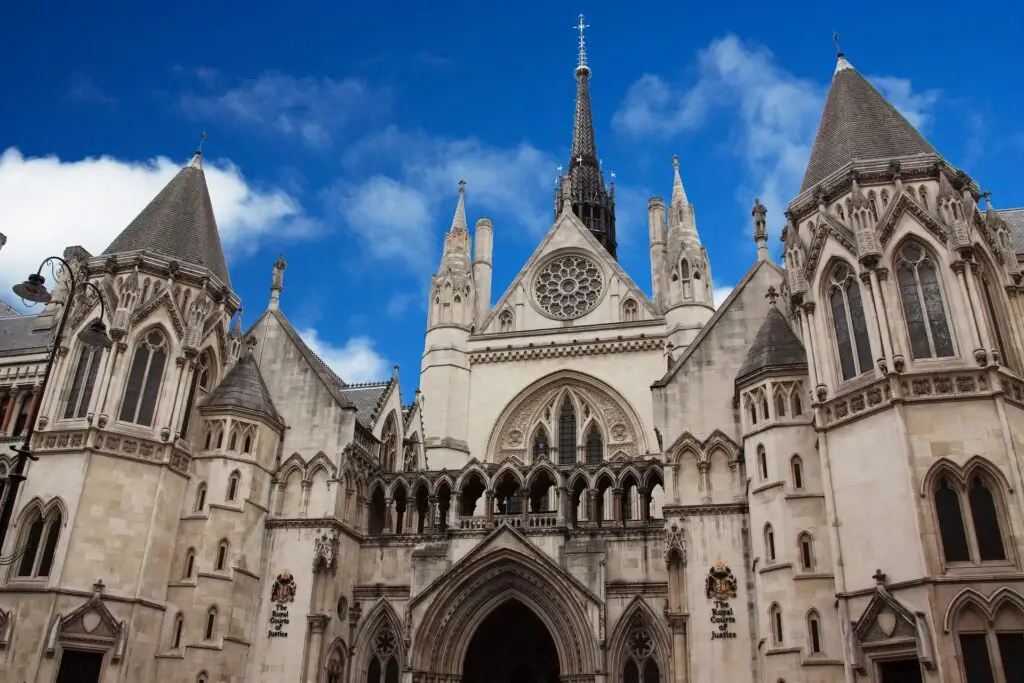In this blog, we will explore what is classed as a dispute with neighbours in the UK and provide insights into common types of disputes and their resolution.
We will explore the diverse facets of neighbour disputes, examining common sources of conflicts, legal considerations, and potential avenues for resolution.
A dispute with neighbours refers to a disagreement or conflict between individuals or households residing in close proximity, typically in adjoining properties or nearby residences.
Definition of What is Classed as a Dispute with Neighbours
In the UK, a neighbour dispute refers to a disagreement or conflict between individuals or households who live in close to each other, typically in adjoining properties or nearby residences.
These disputes often arise from issues related to property rights, shared amenities, behaviour, or nuisances that impact the peaceful enjoyment of one’s property.
Neighbour disputes can vary widely in nature and can include conflicts over noise, boundary lines, parking, trees and hedges, shared property maintenance, anti-social behaviour, and other issues that affect the quality of life and relationships between neighbours.
Resolving neighbour disputes is essential to maintain a harmonious living environment and positive community relationships.
You may also be wondering what you have to declare about neighbour disputes when selling your house. I have a specific blog on what you have to declare that you can read here.
In many cases, efforts are made to address these conflicts through open communication, mediation, or legal channels to find mutually agreeable solutions that respect the rights and concerns of all parties involved.

Types of Neighbour Disputes
Neighbour disputes encompass a range of issues that arise between adjoining properties.
What is classed as a dispute with neighbours? Here are some common types of neighbour disputes in the UK:
1. Noise Complaints
Noise complaints are one of the most prevalent sources of neighbour disputes. These disputes often arise from loud music, parties, barking dogs, or noisy construction work.
While some level of noise is expected in shared living spaces, excessive and ongoing disturbances can significantly impact the quality of life and may be classified as a dispute.
2. Boundary Disputes
Boundary disputes occur when there is uncertainty or disagreement about the exact boundary lines between neighbouring properties.
Common issues include disagreements over fences, walls, hedges, or structures that cross property lines.
3. Parking Conflicts
Parking-related disputes are becoming increasingly common, particularly in areas with limited parking spaces.
Arguments may arise over blocked driveways, unauthorised use of parking spots, or encroachments onto each other’s parking spaces.
4. Nuisance and Anti-Social Behaviour
Certain actions by neighbours can be considered as nuisances or anti-social behaviour.
This includes issues such as harassment, vandalism, dumping rubbish, or allowing pets to foul public spaces.
5. High Hedges and Trees
Tall hedges or trees that obstruct light or invade a neighbour’s property can lead to disputes over rights to sunlight and potential damage caused by roots.
6. Shared Property Maintenance
Disagreements can emerge over responsibilities for the upkeep and maintenance of shared areas, such as shared driveways, roofs, or walls.
7. Pets and Animals
Disputes might arise over pets causing disturbances, such as excessive barking, or causing damage to property or gardens.
8. Children’s Behaviour
Children’s behaviour, especially if they are frequently playing outside, can sometimes lead to disputes when it affects the peace and privacy of neighbouring properties.

Legal Framework for Neighbour Disputes in the UK
The UK has a legal framework in place to address neighbour disputes.
Understanding the relevant laws and regulations is crucial. Local councils and authorities play a significant role in enforcing regulations and resolving disputes.
Familiarising oneself with rights and responsibilities is essential for navigating these conflicts.
Resolving neighbour disputes in the UK often involves navigating a legal framework that addresses various issues concerning property rights, nuisances, and anti-social behaviour.
Understanding this legal context can help individuals make informed decisions when attempting to resolve conflicts.
Here are some examples of key elements of the legal framework for neighbour disputes:
1. The Law of Nuisance: The law of nuisance addresses situations where one party’s use of their property interferes with the enjoyment of another’s property. There are two types of nuisance:
a. Private Nuisance: This occurs when a person’s use of their property causes a substantial and unreasonable interference with a neighbour’s use and enjoyment of their property. Examples include excessive noise, noxious odours, or water seepage.
b. Public Nuisance: This affects the rights of the public at large, such as obstructing a public road or creating a health hazard. Public nuisances are typically addressed by local authorities.
2. High Hedges and Trees: The Anti-Social Behaviour Act 2003 provides provisions for dealing with disputes related to high hedges that negatively affect neighbouring properties. Property owners can complain to their local council, which can intervene and take action to resolve the dispute.
3. Boundaries and Encroachments: Boundary disputes are typically governed by property law. It is essential to check the property’s title deeds, which usually include a plan indicating the boundaries. If a neighbour is encroaching on your property or vice versa, legal action may be required to resolve the issue.
4. Party Wall Act 1996: If you and your neighbour share a boundary wall or structure, the Party Wall Act establishes procedures for carrying out works affecting party walls, boundary walls, and excavations near neighbouring buildings. It requires serving notice to affected neighbours and reaching an agreement before starting the work.
5. Restrictive Covenants: Some properties may have restrictive covenants, which are legal obligations that limit the way the property can be used. Disputes can arise if a neighbour violates these covenants, and legal advice may be necessary to address such situations.
The following articles might be helpful:
- Who to Contact for Neighbour Disputes? (In A Handy Table)
- Laws Related to Neighbour Disputes
- Neighbour Disputes – Glossary of Legal Terms and Concepts

Resolving Neighbour Disputes
Neighbour disputes in the UK can be distressing and disruptive, but fortunately, there are various methods available to address and resolve these conflicts.
Each approach offers distinct advantages and is suitable for different types of disputes and the parties involved.
Here are some of the different ways to resolve a neighbour dispute in the UK:
1. Communication and Dialogue
Open and respectful communication is often the first step in resolving a neighbour dispute.
Talking calmly and rationally with your neighbour about the issue can help bring awareness to the problem and may lead to a mutually satisfactory resolution.
Choose a suitable time and place to discuss concerns, avoiding confrontations and heated discussions.
Alternatively, you can write a letter to your neighbour.
2. Mediation
Mediation is an informal and voluntary process where an impartial third party, known as a mediator, facilitates communication between neighbours.
The mediator does not impose decisions but helps the parties explore potential solutions and find common ground. Mediation can be less adversarial and stressful than going to court, making it a popular option for resolving conflicts.
I have a blog on how to use mediation to resolve neighbour disputes that you can read here.
3. Local Authority Involvement
In some cases, involving local authorities or council departments can help address certain neighbour disputes.
Authorities may intervene in issues such as environmental health issues, noise complaints, anti-social behaviour, or property-related violations.
Here is how to make a complaint to the council about a neighbour.
4. Anti-Social Behaviour Orders (ASBOs)
In cases involving persistent anti-social behaviour, individuals can seek an Anti-Social Behaviour Order (ASBO) against the offending neighbour.
ASBOs are court orders that prohibit specific behaviours and can be used to curb disruptive activities.
5. Restrictive Covenants and Deed Modification
If a dispute relates to restrictive covenants on the property, parties can consider negotiating changes to these covenants through a formal deed modification process.
This typically requires legal advice and approval from relevant parties.
6. Alternative Dispute Resolution (ADR)
Apart from mediation, other ADR methods like arbitration and adjudication provide alternatives to going to court.
These processes offer a more structured approach to resolving disputes outside of the traditional legal system.
Here is all you need to know about ADR and neighbour disputes.
7. Seeking Legal Advice and Court Proceedings
If all other attempts fail, seeking legal advice from a solicitor experienced in property law can be beneficial. Legal professionals can help understand the legal rights and options available.
As a last resort, court proceedings may be initiated to resolve the dispute. Going to court, however, should be considered carefully due to its potential cost, time, and strain on relationships.
Find out what to expect when instructing a neighbour dispute solicitor here.
I have a dedicated section of my website that helps individuals with resolving neighbour disputes. You can browse the different blogs by clicking here.
The UK offers various avenues for resolving neighbour disputes, and the best approach will depend on the nature of the conflict and the willingness of the parties to engage constructively.
Early intervention, open communication, and a willingness to explore different methods are key to finding a resolution that respects the rights and concerns of all involved parties.

Final Thoughts About What is Classed as a Dispute with Neighbours
Living harmoniously with our neighbours is crucial for a peaceful life. However, disputes can arise, even in the most amicable neighbourhoods.
Understanding what is classed as a dispute with neighbours in the UK is the first step toward finding resolution and maintaining positive relationships.
By recognising the different types of disputes, such as noise-related issues, boundary conflicts, nuisance behaviours, high hedges, tree-related problems, and parking disputes, you can better identify the specific challenges you may face.
Each type of dispute requires a unique approach and understanding of the relevant laws and regulations.
Sadly disputes with neighbours are a common occurrence, but they can be resolved effectively through communication, mediation, involvement of local authorities, and seeking legal advice when necessary.
If you are struggling with a neighbour dispute you could always contact Citizens Advice for initial advice.
By understanding the different types of disputes and your rights and responsibilities, you can actively work towards maintaining harmonious relationships within your community.





Leave a Reply